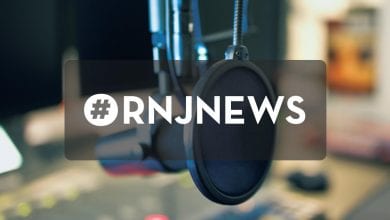
Murphy administration enables expansion of harm reduction centers in New Jersey
NEW JERSEY – As part of the Murphy Administration’s ongoing efforts to combat the impact of the nationwide opioid epidemic on New Jersey, the Department of Health (DOH) has published regulatory changes in the New Jersey Register to facilitate the development of harm reduction centers throughout the state.
Harm reduction centers are an important tool in reducing the detrimental effects of drug use and connecting individuals to resources.
“Establishing harm reduction centers throughout the state will pave the way for more of our community members to receive crucial services that can lessen the harmful effects of drugs,” said Governor Phil Murphy. “This compassionate and evidence-based approach meets people where they are to help safeguard their health and well-being. Harm reduction will continue to play an important role in our ongoing efforts to help residents who use drugs.”
The regulatory changes formally establish the procedures entities will follow when applying to register as harm reduction centers with DOH as well as the operational requirements by which an authorized center may provide harm reduction services. The new rules also clarify various rights of the centers, including that they can provide authorized harm reduction services at a fixed and/or mobile location.
Federally Qualified Health Centers, substance use treatment programs, AIDS service organizations, public health agencies, and other entities can now apply on a rolling basis to be registered as a harm reduction center. Application materials and technical assistance for prospective applicants are available at www.nj.gov/health/hivstdtb/hrc/.
The changes also remove a previous rule that required municipalities to have a certain number of residents with HIV/AIDS in order to be eligible for a harm reduction center. The proposed regulatory changes were reviewed by the Department’s Public Health Council in June and public comment is open. The New Jersey Coordinator for Addiction Responses and Enforcement Strategies (NJ CARES) has also distributed an advisory handout to law enforcement about implementation of these regulations.
“These regulatory changes are aligned with national best practices for harm reduction services,” said Commissioner of Health Judith Persichilli. “With the expansion of harm reduction services, we are re-committing to ending preventable overdose deaths and improving the health of people who use drugs in our state.”
“We commend Governor Murphy’s efforts to improve the health of some of New Jersey’s most vulnerable residents. In 2021, he expanded access to harm reduction services – including providing sterile syringes and needles at no cost to consumers ages 18 and older – throughout the State by giving the Department of Health the right to appoint additional service providers,” said Attorney General Matthew J. Platkin. “We recognize these new regulations as a significant step forward to ensure that residents of New Jersey have access to opioid antidotes, clean needles, and testing supplies, preventing opioid overdoses, reducing the spread of viral infections and keeping people who struggle with addiction the chance to stay alive until they can get on the path to treatment and recovery.”
Harm reduction provides people who use drugs with critical resources – such as clean needles and naloxone – in a safe, non-judgmental environment. This approach has been proven to help prevent overdoses, limit the spread of infectious diseases, and connect individuals to counseling and treatment options. Each current HRC is co-located with an Access to Reproductive Care and HIV (ARCH) Nurse, who provides services to prevent vertical HIV and hepatitis C transmission through the early identification of high-risk individuals.
So far in 2023, there have been 1,428 suspected drug-related deaths in New Jersey, with Black residents disproportionately impacted by this critical issue. In 2021, New Jersey’s Harm Reduction Centers served 3,162 individuals, of which 799 were referred to additional care.
In August, DOH will issue a competitive Request for Proposals to support the activities of approved harm reduction centers. Harm reduction centers can also request naloxone through the Department of Human Services’ Naloxone Distribution Program.





